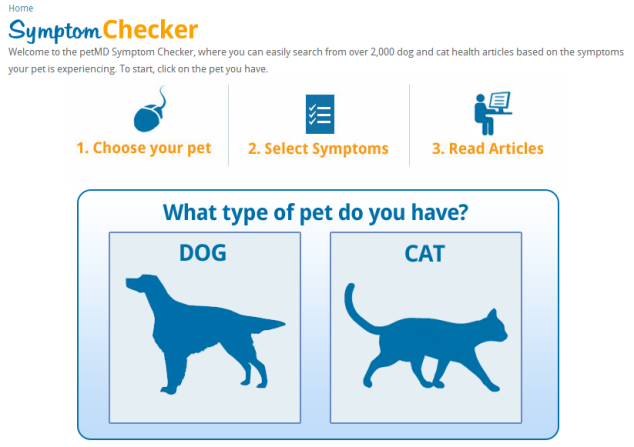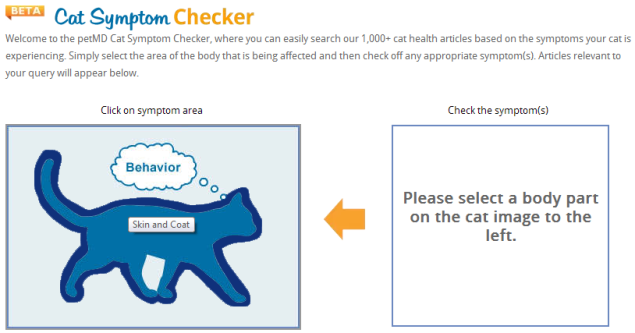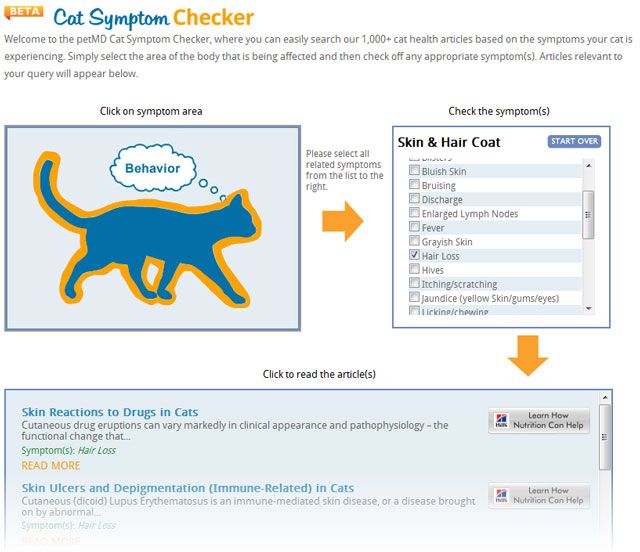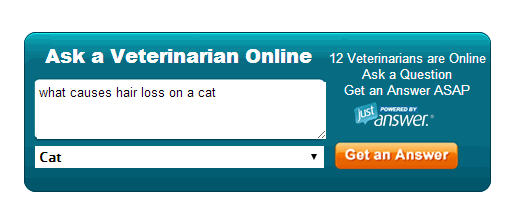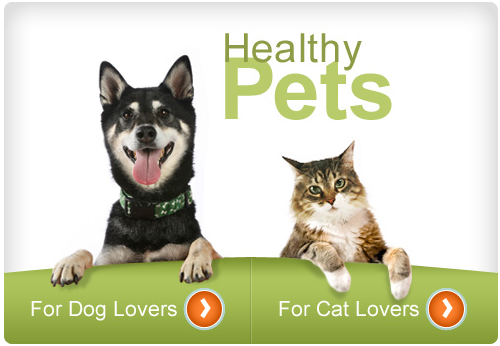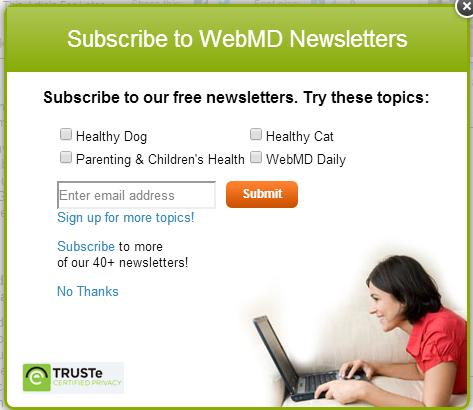Do you own a pet? Well, MakeUseOf has a number of articles with advice on how to access human medical advice online. A few examples include articles on HealthTap and Doctors on Demand. However, a recent article on how to find reliable medical advice online got a reader asking for information on where to find the same kind of reliable health advice for animals. This article will, hopefully, fill the void.
Animal healthcare advice is broadly categorized into two; medical advice for pets and advice for farm animals.
There are dozens of online pet healthcare websites but the following are among the best. Having analyzed these resources in detail, I have no reservations recommending them as the best sources of animal healthcare advice online.
PetMD
We first covered PetMD in 2009 as an online resource for dog owners. The site is owned by Pet 360 Media Network whose portfolio includes sites such as; Pet360, PetFoodDirect, DoggySpace, PetStyle and ZooToo. PetMD content is vet authored and approved. It is the largest source of animal healthcare advice in the world and part of a global network of veterinary professionals.
The sign up process is quick. Simply fill in your name, email address and choose a screen name. Select your subscription preferences. These include;
- the PetMD Newsletter which highlights the latest articles and topics
- the Daily Vet dose of veterinarian knowledge,
- the monthly Care Journal of expert tips and advice, and,
- opt-in promotional emails.
Click the Register button. Next, upload your pet information to the MyPetMD section.
The site has a detailed health library where you can read up on hundreds of diseases that affect; cats, dogs, horses, fish, rabbits, ferrets, reptiles and exotic animals.
There is also a symptom checker where you can search over 2,000 health articles to identify the symptoms your dog or cat is experiencing.
For example, to check a symptom, simply select the part of the body from the Symptom Area as shown below.
From the Check the symptom(s) drop down list, select the symptom and read the related articles that appear at the bottom of the screen.
In addition to the health library and symptom checker, the site also has an emergency section that covers information related to accidents, poisons and toxicity.
You can also consult a real live vet. To do so will cost you $20. However, you need only pay a deposit of $5 and the balance only if you are fully satisfied with the vet's answer. The site has dozens of veterinary professionals on standby to answer your questions online.
If you are in the US, you can also use the Find Vets [Broken URL Removed] service to find a vet near you.
WebMD for Pets
You probably already know that WebMD offers reliable medical advice online for humans. The site also has a sub-domain entirely dedicated to pet health information at pets.webmd.com. The health information is specifically targeted at dog and cat owners.
The site has a huge database of dog and cat health conditions that includes; causes, symptoms, breeds vulnerable, diagnosis, treatment options and prevention information. They also provide comprehensive vaccination information.
All answers in the Q and A section are reviewed by an expert who holds a degree in Veterinary Medicine (DVM). However, unlike PetMD, you cannot ask a question and get a personalized answer. To keep up to date with pet health news, you can sign up for the newsletter to receive regular updates.
American Animal Hospital Association (AAHA)
The AAHA is one the most useful resources to find out if an animal hospital in the US and Canada conforms to the highest standards of pet care. Unlike human hospitals, pet hospitals are not legally required to be accredited by any association.
Pet hospitals can sign up with AAHA voluntary accreditation in order to be listed on their database. Accredited pet hospitals are evaluated on about 900 standards to verify if they are dedicated to excellence in pet care.
So, the next time you move into a new neighborhood and need a quality animal hospital, or you are travelling with your pet and are faced with a medical emergency, visit the AAHA accredited hospital locator to find an AAHA-accredited hospital.
The site also has a pet health library that mainly provides health information on dogs and cats.
Other Useful Pet Health Sites
In addition to PetMD, WebMD Pets and AAHA, there are several other sites that we recommend for reliable animal health advice online. These include:
- Petplace.com
- Petwave.com (Affiliated to PetMD)
- Peteducation.com
- NetVet /Electronic Zoo
Veterinary Associations
Websites run by veterinary associations are also a reliable source of animal healthcare advice. For example the American Veterinary Medical Association (AVMA) has a vast database of animal diseases that offers detailed background information on any animal disease you want to look up. See this search page result for rabies.
Though the content may sometimes be technical, you can still learn a great deal. This public page on the site is a good place to start.
Society for the Prevention of Cruelty to Animals (SPCA)
This is a non-profit animal welfare organization that was founded in England in 1824. Their original mission was to come up with laws to protect horses (the main mode of transportation at the time) from abuse. SPCA organizations are now found in many countries around the world. They campaign for animal welfare, care for lost/injured animals and find new homes for lost/unwanted animals. They also lobby governments for enactment of legislation and by-laws that promote animal welfare.
Many SPCA websites contain lots of detailed animal health information and advice. A few global SPCA sites that feature excellent animal healthcare advice include:
-
- American Society for the Prevention of Cruelty to Animals
- Society for the Prevention of Cruelty to Animals (Hong Kong)
- SPCA Selangor, Malaysia
- Visakha Society for the Protection and Care of Animals - Andhra Pradesh, India
- Royal New Zealand Society for the Prevention of Cruelty to Animals
- RSPCA Australia (Royal Society for the Prevention of Cruelty to Animals)
- Cape of Good Hope Society for the Prevention of Cruelty to Animals - Cape Town, South Africa
The Take Away
As mentioned at the outset, there are many pet health resources online. This article is certainly not exhaustive and only covers the best sources of animal health advice online. Unfortunately, unlike the HON Code for human medical sites, there isn't a similar certification or code of conduct for sites offering animal health care advice online. It is difficult to assess whether a pet website conforms to ethical standards when providing animal health information. I recommend using sites with a long-established history, those run by non-profit bodies and government-run websites.
Also, as with human illness, always seek the services of a registered veterinary professional. Diagnosing and medicating your pet is not recommended and can actually put your animal's life at risk.
Has your pet been ill lately and you needed medical advice online? How did you go about it? Please share with us in the comments below.
Image Credits: picto:graphic via Flickr


